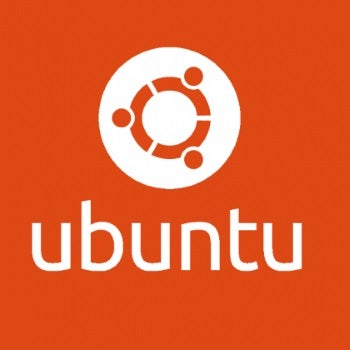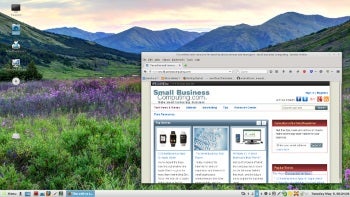Looking for an alternative to Windows? You may not think of your business as an enterprise shop, but you might be surprised at what enterprise Linux vendors have to offer SMBs.
The three major commercial Linux vendors—Red Hat, SUSE, and Canonical, the parent company of Ubuntu Linux—provide excellent products and services for all businesses, large, small, and in between. These are the top three commercial Linux vendors, and when you want to evaluate Linux as an option for your business you might as well start at the top.
Get Small Business IT Right the First Time
The number one reason to use one of these Linux vendors is to get the best tech advice and IT engineering assistance. Setting up your computing infrastructure can make or break a business, and it costs much less to get it right from the start than to have to fix it later. Don’t let the word “enterprise” scare you; it costs nothing to talk to them, and their pricing will likely be lower than you expect.

This is Tux, the Linux mascot, wearing the Red Hat and SUSE logos.
On-premises Servers Versus Cloud Products
Designing a small business computing infrastructure keeps getting more complex. In the olden days you had a few desktop PCs and a server or two. Now you have to consider servers, desktops, tablets, smartphones, and hordes of cloud services.
Despite all the hype around cloud computing, there’s a lot to be said for keeping your servers and your data on your work premises. You’re not dependent on an Internet connection to access your own data and applications, and they remain firmly under your control. However, you need to balance those pros against these disadvantages: you’re responsible for your own data security; backups, software updates, and hardware maintenance, and that means you’ll need hire or outsource technical staff.
Having your own technical talent puts you in the driver’s seat with Linux. You’re less dependent on vendor support and have more flexibility; for example you can save money by mixing free and paid Linux versions. Use a paid Linux on mission-critical services, and the free versions for less crucial tasks.
If all you need are basic file and print services—and perhaps some other core services such as a Web server, mail server, name services, or a development server—then you might not need vendor support at all. If so, you can meet your needs with a free-of-cost Linux. The free-of-cost Linux versions include all those capabilities.
The Ubuntu logo: the Circle of Friends.
Ubuntu Linux is a good choice because it’s a high-quality Linux distribution, and it’s the easiest to get. All Linux distributors are required to make the source code available, and while they’re not required to give it away there is a long tradition of not charging money. You can get Red Hat Enterprise Linux or SUSE Enterprise Linux for free, but you have to jump through significant hoops. Ubuntu does not differentiate between the free community-supported version and the commercial version; they are the same, and it comes in a ready-to-install download.
Once you have your Ubuntu server up and running and decide that you want vendor support, you can add it to your existing system. Canonical’s support system, Ubuntu Advantage, includes the Landscape systems management service for maintaining and monitoring your servers. It offers various levels of support at different price points, ranging from about $211 a year for its Essential Server, to about $800 a year for the Advanced Server, which comes with 24×7 phone support and a cloud support add-on.
Red Hat and SUSE both offer 30- to 60-day ready-to-install trial versions. Red Hat Enterprise Linux starts at $349 a year for the self-supported version, and $799 a year buys you the supported version. SUSE Linux Enterprise Server also offers a self-supported version for $349, $799 for the supported version, and $1,499 gets you premium 24×7 support.
Desktop Linux
Every small business should test desktop Linux to see if it meets their needs. It’s the same as server Linux; the difference is the applications you install. If all you need is Web surfing, email, and maybe an office suite then you can probably dump your expensive, insecure Windows PCs and replace them with reliable Linux desktops. It’s really no big deal; a lot of the applications are the same, such as Web browsers and LibreOffice, and it’s all pointy-clicky.
My Ubuntu Linux desktop.
Just like the server editions, you have the option of paid support for your Linux desktops, and can mix paid and free. All three vendors have desktop support packages that cost around $100 per year per installation, which includes some application support and central management tools.
Where do you buy Linux desktops? You can purchase the software directly and install it yourself on your existing hardware. Dell offers a wide range of Red Hat and SUSE computers, and Hewlett-Packard supports Red Hat, SUSE and Ubuntu.
If you’re in the market for a small business laptop, you’ll want to read our recent article, 5 Linux Laptops for Small Business.
Hosted Linux Services in the Cloud
You can’t escape hearing about cloud services—they’re all the rage—and the top-three Linux vendors have all invested heavily in cloud offerings. If you want to host your own cloud services, you should know that while Red Hat and SUSE offer the most extensive product lines and the best management tools, they’re rather complex.
Canonical’s offerings are simpler and easier to learn. Management tools are everything in the datacenter; do you want to spend your time doing everything the hard way? Of course you don’t.
If the idea of being free of maintaining your own datacenter is appealing, Canonical’s BootStack managed cloud offers hosted, managed platform services. This is a fast, flexible way to get up and running, and it frees you of having to hire your own tech staff.
Red Hat’s calls its managed services OpenShift Online. SUSE has taken a slightly different approach. Rather than supporting its own hosting servers, you can run SUSE Linux Enterprise Server on Amazon EC2.
All three Linux vendors offer extensive engineering and support services, so they will build exactly what you want.
Interoperability: Let’s All Play Nice
Red Hat and SUSE have the most extensive interoperability products. “Interop” is another big buzzword these days. Microsoft, Apple, and other proprietary vendors have invested decades and tons of money in foiling interoperability by locking customers in to a specific platform. But now, because of the success of Linux and open source, they’re changing their tune and paying at least token attention to interoperability.
Interop covers a lot of ground. For most computer users, the most basic and necessary interop is data file formats. LibreOffice, the free open source office suite, handles Microsoft Word documents very well, though you can still be tripped up by complex macros.
It handles spreadsheets and presentations less well. If document compatibility is a headache, consider virtual machines. Red Hat and Microsoft launched a virtualization partnership several years ago, and you can run Red Hat Linux in a virtual machine on Windows, and Windows in a virtual machine on Red Hat very nicely.
You may do the same with other Linux versions, though it may be a little harder to make it work. The advantage is having both Linux and Windows on the same PC so you can use all of your favorite applications on both.
These Linux vendors offer much more than I can possibly include in a single article. Take a look at their websites, talk to them, and learn what they can do to help your small business.
Carla Schroder is the author of The Book of Audacity, Linux Cookbook, Linux Networking Cookbook,and hundreds of Linux how-to articles. She’s the former managing editor of Linux Planet and Linux Today.
| Do you have a comment or question about this article or other small business topics in general? Speak out in the SmallBusinessComputing.com Forums. Join the discussion today! |



